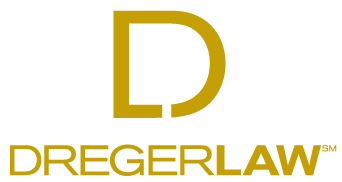Protecting Intellectual Property
When you form relationships with people to broaden your business’ presence in the marketplace, you must bring certain individuals into a highly sensitive domain. There’s really no way around it. In order to get these potential investors, employees, vendors or whomever else up to speed, it’s necessary to share confidential information.
While you have to explain how your business works for these new relationships to benefit your company, the fact is if this information were ever to get into the wrong hands, it could be disastrous. You might wind up with new competitors across the street or you could discover all of your employees have been lured away, leaving your business unable to function.
For these reasons, you need security so that your confidential information, also known as intellectual property, stays private. So in this post, I want to focus on why it’s incredibly important to protect your intellectual property, and to prevent it from ever being stolen by people you thought you could trust.
What Is Intellectual Property?
Now intellectual property isn’t a physical object such as a car or a machine. It’s intangible, not something you can hold in your hand or touch. But without it, you don’t have a business. Think of intellectual property as the unique ideas and secrets that make your business marketable and are the basis for its future success.
Intellectual property can come in a number of different forms, including:
- Copyrights;
- Trademarks;
- Patents; and
- Trade secrets.
Other aspects of intellectual property can include highly sensitive information, such as annual revenues, profit margins and potential new product designs or services. These are all things you definitely don’t want your competitors to know.
Protecting Your Intellectual Property
Intellectual property is basically the lifeblood of your business. It is what makes your company unique from all the others in your industry. So it’s essential to ensure this information isn’t stolen out from under you. The survival of your business is at stake.
To protect your intellectual property, there are two paths you can take:
- Make any prospective individual who may do business with your company (for example, vendors or investors) sign a non-disclosure agreement (NDA).
- Make any individuals who will be doing business with your company (for example, employees or independent contractors) sign restrictive covenant agreements.
The same guiding principle is at work in both non-disclosure agreements and restrictive covenants. Basically, these are contracts that say in no uncertain terms that if someone privy to your intellectual property violates the trust between you, then you can go to court to get a restraining order against this person to stop their use and/or disclosure of your company’s confidential information. In addition, you will be able to have the court make the violating party pay all of your legal fees incurred in enforcing your rights.
Needless to say, NDAs and restrictive covenants are designed to be enormously intimidating. That’s because it’s crucial for anyone in whom you confide to know the serious consequences of their disloyalty, if sensitive information about your business is ever distributed.

